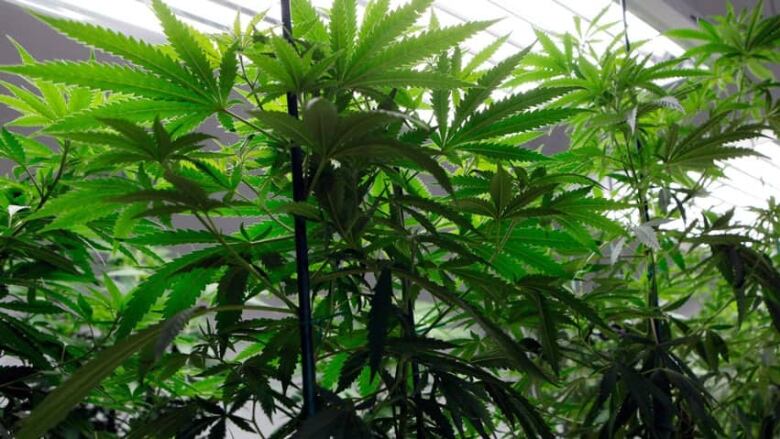Cannabis prescriptions are eligible medical expense, CRA confirms
Medical marijuana, marijuana seeds on list of eligible medical expenses

The Canada Revenue Agency has confirmed that medical cannabis purchased under prescription is an allowable medical expense at tax time.
The CRA sent a letter to the Canadian Medical Cannabis Industry Association last month confirming cannabis from a licensed producer qualified as a medical expense.
- Medical marijuana could be covered by insurance, experts say
- Medical marijuana: New rules and a 'ton of confusion'
The CRAwas responding to a letter sent earlier this year by the CMCIA, the industry association for licensed producers of medical cannabis, asking for a ruling on the issue, according to association spokesman Cam Battley.
The CRA websiteincludes medical marijuana and marijuana seedson itslist of eligible medical expenses.
A CRA spokeswoman said today the Income Tax Act has recognized amounts paid for medical marijuana as a medical expense for almost a decade.
"This is an important step, because it allows patients to write off a major component of their health-care costs," Battley told CBC News.
While the allowable medical expense is a complicated formula that is calculated based on taxable income, the cost of legally licensed marijuana can be high, meaning many who use the drug under prescription may be eligible. Often taxpayers need to reach a highthreshold of allowable medical expenses to qualify for any tax relief.
Battley estimated an average cost per patient of about $7.60 a day, meaning a full year's prescription could cost $2,774. The cost of the drug can be lower or higher, depending on dosage and type.
Health Canada moves against storefront dispensaries
Earlier this week, Health Canada sent out cease-and-desist letters to 13 unlicensed marijuana dispensaries demanding they shut down immediately.
It threatened raids by the RCMP unless the dispensaries submit a written statement by Sept. 21 confirming they have ended the practice of dispensing marijuana.
- Vancouver pot shops should be shut down, says Rona Ambrose
- Marijuana dispensary regulations approved in Vancouver
The threat carries through on Ottawa's warnings that it will not tolerate storefront dispensaries.
The CMCIA is continuing its campaign to normalize the use of cannabis from licensed producers with a legal prescription from a doctor.
Battley said thenext objective of the CMCIA is to achieve broader coverage of cannabis prescriptions byprivate insurers.
He said the group has opened discussion on the issue with the insurance industry and found it "Surprisingly open and willing to have a conversation."
Lobbying for private insurance coverage
"I think that's because they know it's here to stay. This is not flash-in-a-panit's something around which there is a parallel regulatory system It's a true prescription drug and it's here to stay," he said.
Earlier this year, Sun Life agreed to pay for a University of Waterloo student's medical marijuana prescription through his student health plan after the student union went to bat for him. Jonathan Zaid uses the drug to combat a syndrome called new daily persistent headache.
"This is an offset for the insurers to pay for medical cannabis as his regimen of medical cannabis was cheaper than his regimen of prescription drugs," Battley said.
Battley said employers may also be receptive, as it is a question of getting people back to work after an illness.












_(720p).jpg)


 OFFICIAL HD MUSIC VIDEO.jpg)
.jpg)



























































































